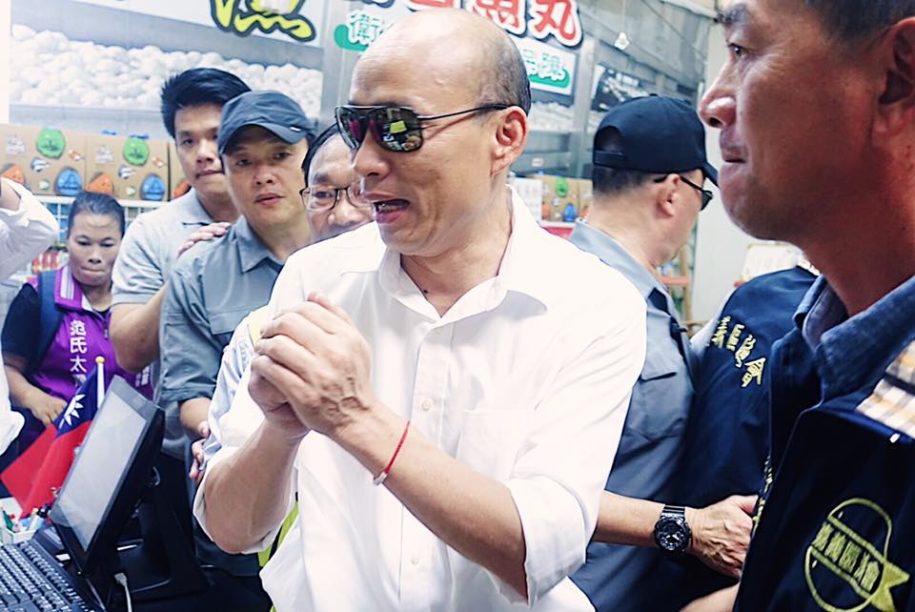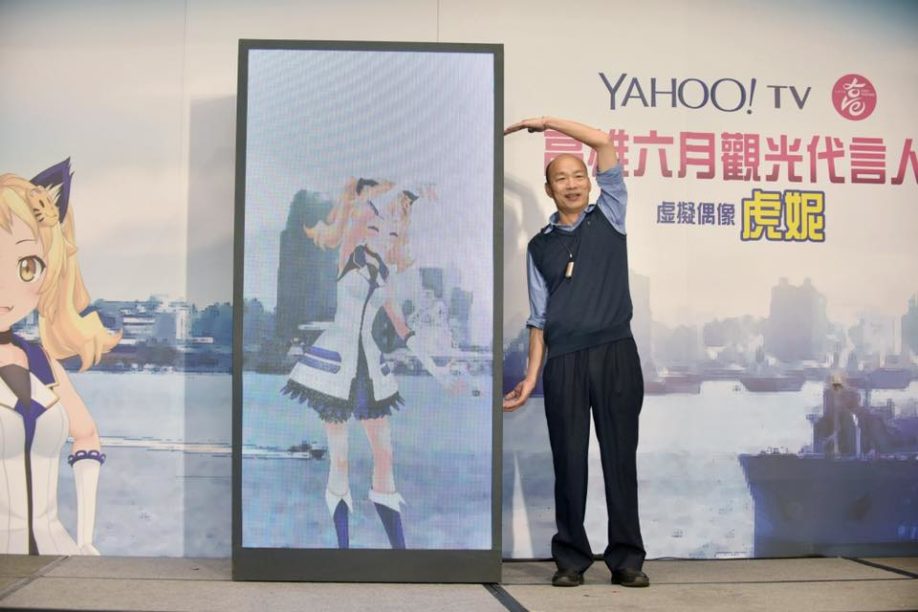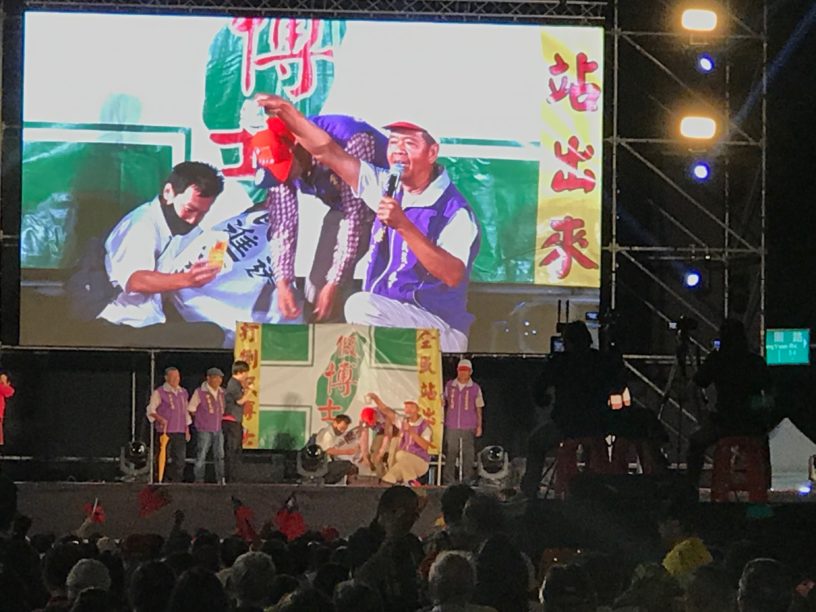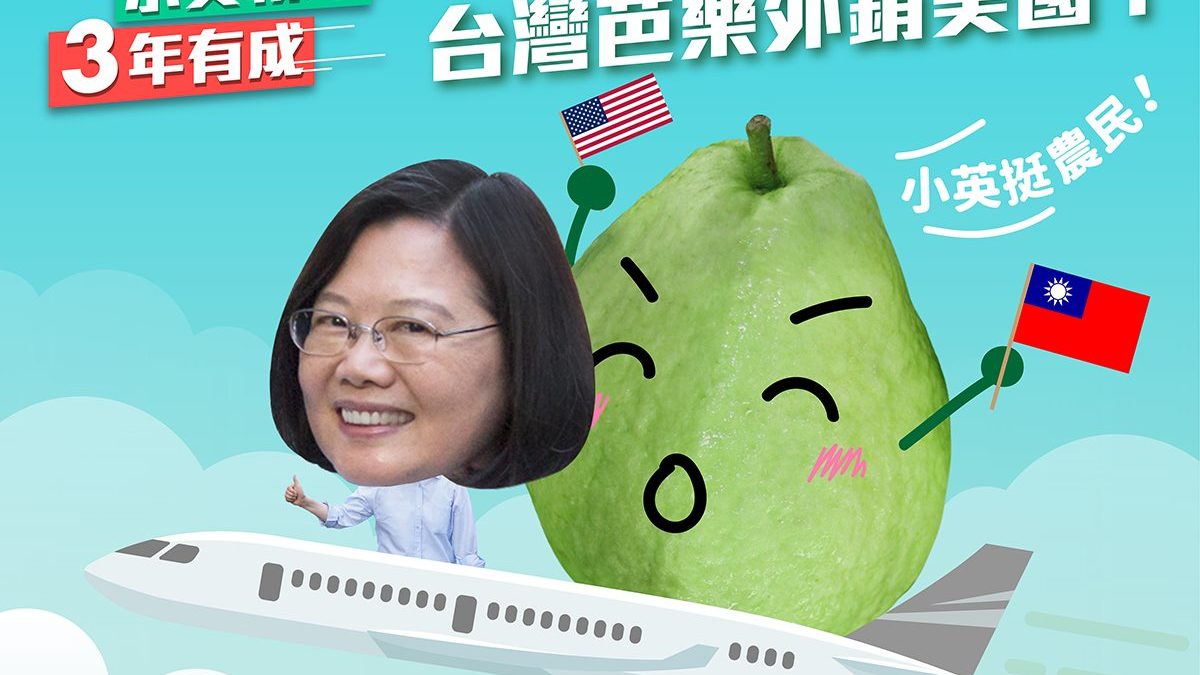A strange political row broke out in Taiwan last month when former president Ma Ying-jeou of the Kuomintang lashed out against current president Tsai Ing-wen of the Democratic Progressive Party (DPP), claiming that she was manipulating the public using “dried mango strips”.
The DPP promptly hit back, with party chair Cho Jung-tai calling Ma’s comments “aloof.” If this was the state of affairs in Taiwan, said Tsai, it was Ma, not she, who had planted the mangoes to begin with.
Taiwanese politics must be entirely incomprehensible to outsiders, I thought when I first read about all this. The public discourse here is hyper-contextual, characterized by countless bizarre terms. For example, as Taiwan’s first female president, Tsai at some point acquired the nickname of “Spicy Taiwanese Sister Tsai Ing-wen” (辣台妹蔡英文). 辣台妹 or “Spicy Taiwanese Sister” is slang for an attractive Taiwanese young woman. In the interests of livening up Tsai’s image as a somewhat colorless bureaucrat, the Tsai campaign jumped on board with the label, and Tsai began referring to her supporters as the “Spicy Pro-Taiwan Faction” (辣台派). Now you’ll see this term used in entirely serious news headlines.
To return to the dried mango strips: There’s a sense of doom in the air these days for politically-minded young people in Taiwan. Elections are a short seventy days away, and some expect a political rout, resulting in the Kuomintang’s return to power.
The Kuomintang is the former authoritarian party of the martial law period, which was allowed to survive post-democratization. Some claim that the Kuomintang may be one of the world’s richest political parties even after democratization—if not the richest party in the world—because the party was permitted to retain its assets after the end of the authoritarian period.
Tsai’s DPP, on the other hand, emerged from Taiwan’s democracy movement. While the Kuomintang was defeated in a landslide in 2016 elections, with the DPP controlling both the presidency and the legislature for the first time in Taiwanese history, the Kuomintang seemed resurgent in last year’s elections. Had the public decided that the Kuomintang was a preferable option to the DPP?

Polling presently shows Tsai consistently ahead of the Kuomintang candidate, Han Kuo-yu. However, anything could happen in seventy days. And elections sometimes see last-minute soap-opera-like plot twists, such as the assassination attempt on then-president Chen Shui-bian, who was shot by a gunman one day before the presidential election on March 19th, 2004 (an election he went on to win.) It is also unclear how the DPP will perform in legislative elections, with many expecting that the Kuomintang will make substantial gains there as well.

This election cycle is decidedly more off-kilter than usual. Han Kuo-yu of the Kuomintang is a Trumpian figure, forever in the news for weird behavior such as climbing a tree during a visit to inspect areas affected by a typhoon, or making bizarre campaign promises, like his proposal to build flag-raising platforms on all of Taiwan’s highest peaks. When asked about his views of cross-strait relations, Han said recently that the relation between Taiwan and China was comparable to that between a “bastard” and his “father,” without specifying which he meant was which; he then exclaimed to himself and the assembled press, “Isn’t that an amazing formulation?!” But none of this has prevented Han from attracting diehard supporters.
On the other hand, the DPP and the aligned political parties of the “pan-Green” pro-independence coalition are in the midst of a crisis of their own. DPP party elders, including political dissidents who spent many years in jail during the authoritarian period, seem to have gone off the deep end, making wild allegations such as insinuating that Tsai’s doctoral dissertation is fake, and forming a new political party, the Formosa Alliance. Accusing the president of faking his or her doctoral dissertation is evidently Taiwan’s equivalent of birtherism. The London School of Economics came forward to vouch for the authenticity of Tsai’s doctoral dissertation, but members of the Formosa Alliance seem unconvinced.

The New Power Party (NPP), which emerged from the 2014 youth-led Sunflower Movement and quickly became the third-largest party in Taiwan, is in the process of tearing itself to pieces over internal conflicts—a predicament common enough among history’s nascent left-wing parties. Many activists had hoped that the NPP would eventually become large enough to squeeze out the Kuomintang and become Taiwan’s second-largest party. The factionalism came as a shock; there were few indications that internal splits within the NPP had become so serious.
And new parties seem to be popping up out of nowhere. Some are simply composed of crazies, such as the pro-unification Red Unification Party, or the Taiwan Penghu Party, which advocates the independence of Taiwan and Taiwan’s outlying island of Penghu, but does not advocate independence for the outlying islands of Mazu or Kinmen (Why the Mazu and Kinmen hate? I have no idea). Heck. The other day a group of politically progressive YouTubers announced the formation of the “Unstoppable Joy Party”. Who knows? They could actually do quite well in the next set of elections.
I’ve dubbed this the most kiang election in Taiwanese history. Kiang is the Taiwanese pronunciation of 狂, meaning crazy, a term commonly used to refer to someone tripping out on drugs. This is where we get to the dried mango strips.
There’s a word for the aforementioned feeling of doom among Taiwan’s young people: 亡國感 (Wángguógǎn). The Taipei Times, Taiwan’s only English-language print newspaper, chose to render this as “a sense of the nation’s impending doom.”
The term refers to a feeling (感) of incipient “national destruction” or 亡國 (Wángguó). This seems to be a concept very specific to Chinese dynastic history, thousands of years during which small states were conquered and effectively ceased to exist.
There’s a real fear that the Kuomintang’s return to power could signal the literal destruction of Taiwan, since the party supports unification with China. And because 亡國感 sounds similar to 芒果乾 (Mángguǒgān), meaning “dried mango strips”, “dried mango strips” became a sardonic reference to this sense of national doom.
So when Ma lashed out at Tsai Ing-wen for manipulating the public with “dried mango strips,” Ma was accusing the DPP of trying to leverage public fears of the Kuomintang. Ma’s presidential term ended in the aftermath of the 2014 Sunflower Movement—a protest movement against Ma’s proposed trade deal with China. Many had feared that this deal would imperil Taiwan’s political freedoms. The pro-independence candidate Tsai was elected on this wave of protest.
The Kuomintang likes to claim that the DPP somehow engineered the Sunflower Movement by secretly stirring up Taiwanese young people’s fears regarding China. Their conspiracy theory extends to claims of brainwashing young people through subversive changes to Taiwanese high school textbooks made during Chen Shui-bian’s administration. Chen, the first DPP president of Taiwan, was also the first non-Kuomintang president in Taiwanese history. I find this conspiracy theory indicative of how the Kuomintang, a former authoritarian party, still has only a tenuous grasp of the concept of democracy.
But the term “dried mango strips” also captures something of the absurdity of this election season. It sounds like the street term for some kind of new drug. This election has felt like a bad trip so far, after all.
As for me, I’m cautiously optimistic. Five years after the Sunflower Movement brought hundreds of thousands onto the streets of Taipei to protest, I’m not so convinced that the public has suddenly become completely amnesiac regarding the Kuomintang’s pro-unification aims, or the crimes it committed during the authoritarian period.
But complacency will only ensure a Kuomintang victory. A sense of crisis is still necessary to get voters out there. So maybe it’s good to keep that dried mango taste in mind.






